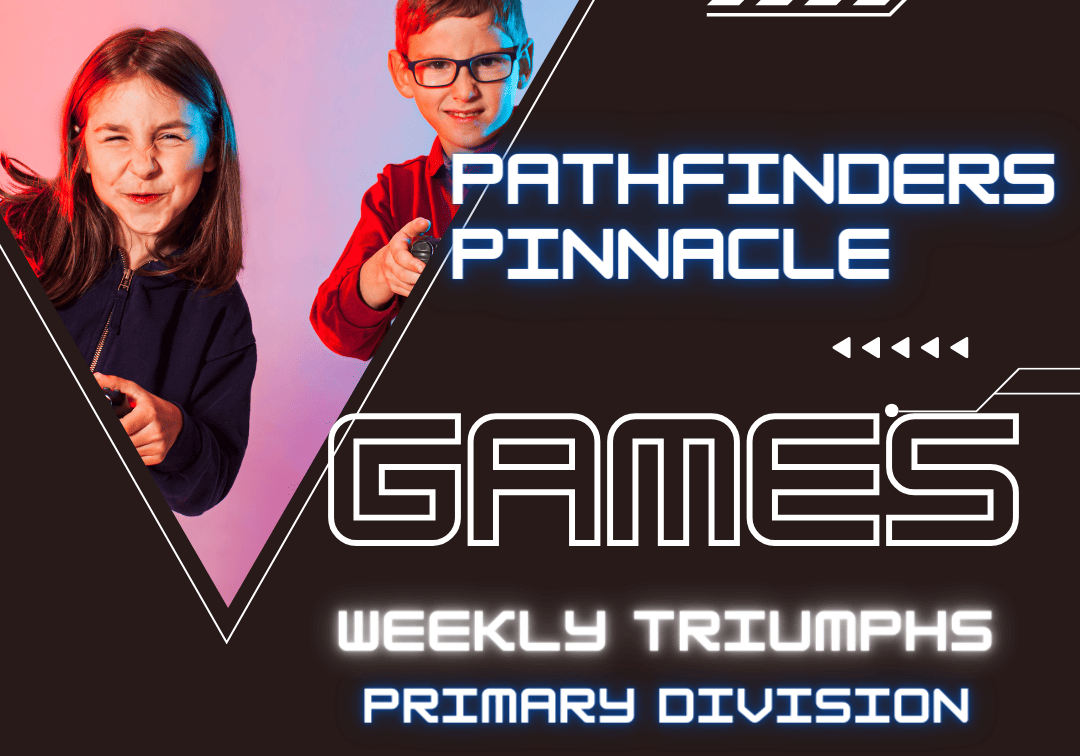CogAt®
The Cognitive Ability Test®, or CogAt®
At the Masterpiece Academy, we specialize in preparing students for the Cognitive Abilities Test® or CogAt®, ensuring they can showcase their true potential and qualify for gifted programs.

Smart Starter Savings!
CogAt® Testing Windows
Loudoun County Public Schools
February 1 to 28, 2024
Fairfax County Public Schools
October 2 to 27, 2024
Fairfax County Public Schools
October 2 to 27, 2024
We start with a diagnostic test before the first session so teachers will get an overview of your children’s skills. Teachers plan instruction and make instructional decisions based on your child's results. We monitor your children’s progress and constantly adjust our instruction based on your child’s pacing and learning progress.
We will be with you on your journey!
An additional benefit is we guide you through the entire process of getting into the gifted program up to your children’s gifted portfolio preparation.

CogAt® Test Tips and Strategies for Parents
CogAt is a gifted screener administered to elementary students for placement in gifted programs. There are three major categories and three subtests in each category. Each subtest takes about 11 to 15 minutes.
1. Mastering Verbal Classification: Unlocking Categories and Concepts
Verbal classification is all about understanding how different words and concepts are connected. It’s a fundamental skill that lays the foundation for logical thinking and vocabulary expansion.
Strategies for Parents:
- Play Sorting Games: Use everyday objects or picture cards. Group them into categories like fruits, animals, or colors. Encourage your child to explain why items belong to a specific group.
- Create Word Lists: List words under specific categories with your child. For example, list types of transportation, clothing, or food. This activity enhances word association and category formation skills.
- Read and Discuss: Reading stories and discussing the different categories of objects, characters, or places in the story helps children understand and apply classification in context.
2. Enhancing Verbal Analogy: Developing Reasoning and Relationships
Verbal analogy is a critical thinking skill that helps children understand relationships between different sets of words, enhancing their reasoning and problem-solving abilities.
Strategies for Parents:
- Use Everyday Examples: Create analogies using familiar items or situations. For instance, “Just as a pen is used for writing, a spoon is used for...?”
- Analogy Games: Play games that involve finding relationships between words. Please encourage your child to explain their thinking process.
- Read and Reflect: While reading together, point out and discuss any analogies used in the text. Please encourage your child to create their analogies based on the story.
3. Mastering Sentence Completion: Enhancing Expression and Understanding
Sentence completion exercises are great for improving vocabulary, understanding sentence structure, and enhancing overall language fluency.
Strategies for Parents:
- Fill-in-the-Blanks: Create or find worksheets with incomplete sentences. Ask your child to fill in the blanks with appropriate words, focusing on meaning and grammatical correctness.
- Story Prompts: Give your child story starters where they have to complete the story. This encourages creative thinking and sentence formation skills.
- Daily Conversations: Integrate sentence completion in daily conversations. Start a sentence and ask your child to complete it, making it a fun and interactive learning process.
1. Number Series: Unraveling Patterns and Sequences
Mastering number series helps children recognize patterns, understand sequences, and develop logical reasoning skills, essential for mathematical proficiency.
Strategies for Parents:
- Pattern Recognition Activities: Use daily activities to point out patterns in numbers. For example, counting by 2s, 5s, or 10s can reveal simple sequences.
- Practice Worksheets: Provide your child with various number series worksheets that gradually increase in difficulty, allowing them to practice and improve.
- Interactive Online Games: Leverage technology with games focused on number sequences, making learning fun and educational.
2. Number Analogy: Connecting Numbers Logically
Number analogy tests a child's ability to understand how numbers relate, fostering critical thinking and problem-solving skills.
Strategies for Parents:
- Everyday Examples: Use real-life examples to create simple analogies, like "2 is to 4 as three is to ?". This helps in understanding the concept of relationships between numbers.
- Analogy Challenges: Regularly challenge your child with new analogies. Increase complexity as they improve, encouraging deeper thinking and analysis.
- Group Learning Sessions: Consider joining a class at the Masterpiece Academy where children can solve number analogies together, promoting collaborative learning.
3. Number Puzzles: Enhancing Problem-Solving Skills
Number puzzles are excellent for developing a child's ability to work through complex problems, enhancing their numerical skills and patience.
Strategies for Parents:
- Puzzle Time: Allocate specific times for puzzle-solving. Start with more straightforward puzzles and gradually introduce more complex ones.
- Discuss Strategies: Talk through different strategies for solving puzzles. Please encourage your child to verbalize their thought process, which helps them understand and retain.
- Use Apps and Online Resources: Utilize educational apps and online resources that offer a variety of number puzzles, catering to different age groups and difficulty levels.
1. Figure Matrices: Mastering Patterns and Relationships
Figure matrices challenge children to identify patterns and relationships between shapes, fostering critical thinking and visual-spatial reasoning.
Strategies for Parents:
- Pattern Identification Games: Use puzzles and games that identify patterns and sequences in shapes and colors.
- Create Your Matrices: Create custom figure matrices with your child using blocks or drawing shapes. This not only aids in understanding the concept but also boosts creativity.
- Regular Practice: Consistent practice with different types of figure matrices can greatly enhance familiarity and confidence.
2. Figure Analogy: Understanding Visual Relationships
Figure analogy tests help develop a child's ability to discern and reason about spatial relationships, a skill crucial in many real-life contexts.
Strategies for Parents:
- Use Real-World Examples: Illustrate analogies using everyday objects. For instance, show how the relationship between the parts of a pair of scissors is similar to that of a pair of tongs.
- Online Resources and Apps: Utilize educational apps and websites that offer interactive figure analogy exercises.
- Encourage Explanation: After solving each analogy, encourage your child to explain their reasoning. This enhances understanding and retention.
3. Paper Folding: Developing Spatial and Logical Skills
What's Good About It: Paper folding exercises help children understand geometric concepts, enhance their spatial visualization skills, and improve their ability to predict and reason about transformed shapes.
Strategies for Parents:
- Hands-On Folding Activities: Engage in origami or simple paper folding activities. Start with basic folds and gradually introduce complex patterns.
- Visualization Exercises: Before folding the paper, ask your child to predict the outcome of specific folds and cuts. This develops mental visualization skills.
- Use Diagrams and Models: Show diagrams or models of folded and unfolded papers to provide a clear visual understanding of the transformation.
These concepts are not part of the regular school curricula, so test preparation is crucial to ensure your children perform their best. The question types, the strategies, the test format, time management, pacing, and test stamina are developed over a long period and do not happen overnight. Our digital learning platform and practice items simulate the CogAt® test.
Thursday Tips: CogAt®, NNAT® and Gifted Portfolio
Backed by research, join the Masterpiece Academy's exclusive webinar series to equip parents for CogAt® and NNAT® prep and craft compelling gifted portfolios. Each month, we delve into innovative teaching methodologies and practical strategies designed to enhance your child's cognitive abilities and showcase their unique talents.

What to Expect
Learn how to curate a portfolio that highlights your child’s exceptional abilities. Get tips on selecting suitable materials, documenting achievements, and showcasing creative talents that stand out.
Understand the nuts and bolts of Cognitive Assessment Tests®. Our experts will cover various components, including verbal, nonverbal, and quantitative reasoning, providing a comprehensive roadmap for effective preparation.
Discover cutting-edge teaching methods that resonate with gifted learners. From differentiated instruction to problem-based learning, explore how these approaches can be adapted to suit your child's learning style and needs.
We understand that every student is unique. Our webinars offer personalized tips and strategies, ensuring that you're prepared and prepared in the best way for you.
From time management to critical thinking, we equip you with skills to support your children.
Learn from successful parents and experts who have successfully navigated the test prep and portfolio process. Learn from their experiences and apply these best practices to your approach.
Who Should Attend?
- Parents who are exploring test prep options for their children's upcoming CogAt® and NNAT® tests.
- Educators who are seeking effective strategies to support gifted students.
Thursday Tips Webinar Details
- May 23, 2024, from 8:00 to 8:30 pm
- Third Thursdays of the month
- Join from the comfort of your own home.
- Sign up below!
Poor test preparation and lack of test-wiseness results in test scores that do not accurately reflect the students’ knowledge and aptitude.















